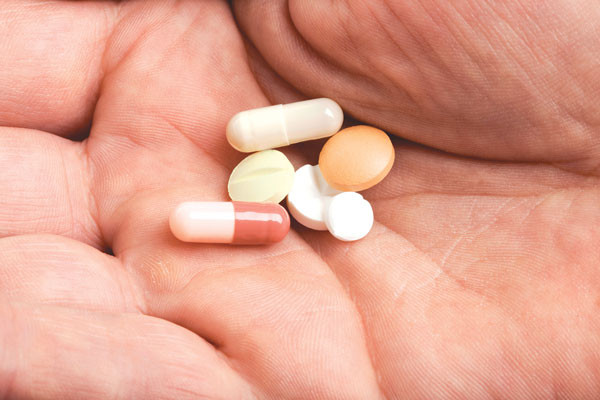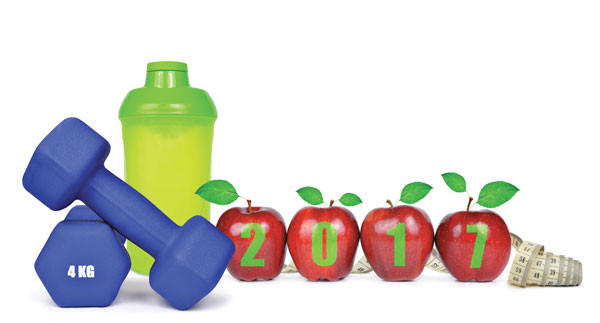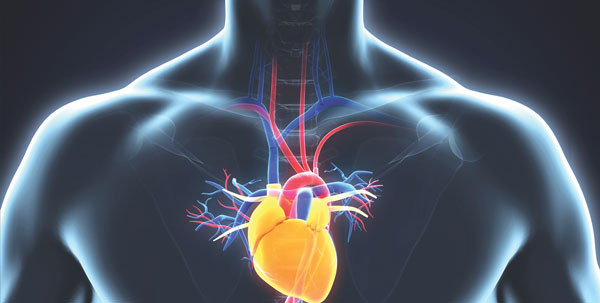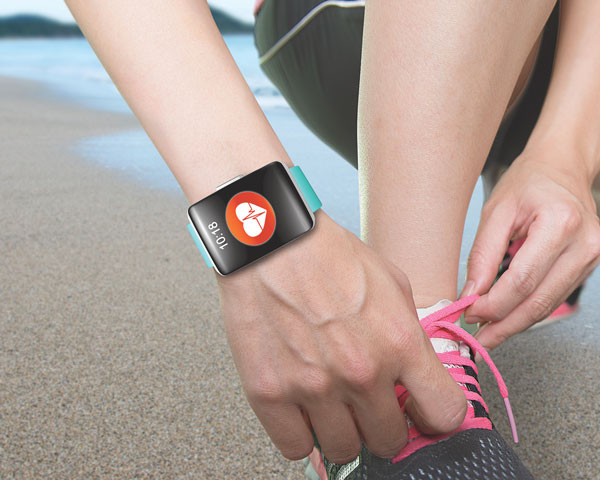
What are somatic workouts?

How to curb your stress eating

How to spot Parkinson’s disease symptoms

8 simple ways to reduce ultra-processed foods in your diet

Heart failure symptoms in women: How they’re different

GERD diet: Foods to avoid to reduce acid reflux

Strong is the new skinny

Everyday habits that sneakily weaken your bones

Don’t wait to get help for back pain

Correcting how you walk may ease osteoarthritis knee pain
Heart Health Archive
Articles
Are heart attack triggers real?
A large international study of people around the world suggests that extreme physical exertion or emotional upset may be triggers for a heart attack.
Say cheese?
Dairy products don't seem to harm the heart. But plant-based fats are probably a better choice than cheese.
Image: AlexPro9500/Thinkstock
Health-conscious consumers know to steer clear of diets that include lots of meat—especially fatty, salty processed meat. But what's the deal with dairy? Nutrition experts have long recommended low-fat milk and yogurt as good choices for getting the two to three daily servings of dairy recommended by federal dietary guidelines.
Over the past few decades, Americans have been spooning up more yogurt and drinking much less milk. But the biggest change by far has been in our cheese consumption, which has skyrocketed since the 1970s (see "Trends in dairy intake: Less milk, more cheese and yogurt").
What is a lacunar stroke?
Lacunar strokes, which account for about one-fifth of all strokes, occur in small arteries deep within the brain. Although these strokes may not cause symptoms, those that do may cause weakness in the face, arm, or leg on one side of the body.
Does it matter how you lower your cholesterol?
Certain cholesterol-lowering medications—namely, ezetimibe (Zetia) and drugs known as bile acid binders—also appear to be effective at lowering cholesterol and reducing the risk of serious cardiovascular events.
How winter’s chill can challenge your heart
A few simple precautions can minimize your risk.
Image: robertiez/Thinkstock
Every time you venture out into the bone-shivering, teeth-chattering cold of a Northern winter, your heart and blood vessels kick into overdrive to keep your internal organs cozy. To accomplish this feat, the tiny blood vessels in outlying areas such as the fingers and toes constrict to stem the loss of body heat into the environment. The flip side of this protective maneuver is that the heart must beat against extra force to overcome the resistance it meets in the narrowed vessels.
Supply and demand mismatch
Smart precautions
You can minimize the impact of cold weather on your heart by taking steps to avoid situations that are likely to put you at risk.
Don't overexert. Remember that your heart is already working overtime to compensate for the cold temperatures. Therefore, don't push yourself with strenuous activities such as shoveling heavy snow or partaking in vigorous outdoor exercise unless you are in good physical shape.
Keep your body temperature steady. Put on warm outerwear including coat, gloves, and hat before facing the elements. This will guard against hypothermia, in which the body's internal temperature falls too low. Likewise, dress in layers that you can peel off if you get too warm. Overheating can lead to an abrupt and potentially dangerous drop in blood pressure.
Get a flu shot. A bout of seasonal flu can trigger a heart attack in people already at risk for heart disease. The flu causes a fever, which can make your heart beat faster. It can also cause dehydration, which can have a similar effect as the heart beats faster to maintain your blood pressure.
Keep your prescriptions filled. Icy conditions can make it difficult to get to the pharmacy to pick up a prescription, so make sure not to let your supply of heart medicines run low.
Heed the warning signs
Your New Year’s resolution: A gym membership?
What to consider when choosing a workout venue.
Image: vencavolrab/Thinkstock
If getting in shape tops your list of New Year's resolutions, you're in good company. During the first few months of the year, sign-ups at fitness centers and health clubs tend to trend upward. While these memberships can be costly, you may be able to find more affordable options or take advantage of discounts. But no matter what you pay, shelling out a monthly fee may encourage you to use the gym regularly to get your money's worth. If you do, your heart will likely reap the rewards: regular exercise is one of the best ways to boost cardiovascular health.
"The main advantage to joining a gym is to have access to a wide variety of exercise equipment," says Alex Petruska, a senior physical therapist at the Sports Medicine Center of Harvard-affiliated Massachusetts General Hospital. That includes machines for a cardiovascular workout, such as treadmills, elliptical trainers, stationary bikes, and stair steppers, as well as a variety of weight machines.
Bringing awareness to aneurysms in the chest
Most often, bulges in the aorta near the heart are found by accident. Should you be screened for this rare yet dangerous condition?
Image: Nerthuz /Thinkstock
The aorta, the body's largest blood vessel, arises from the heart's left pumping chamber, then curves up and over the heart in a gentle arc. In some people, a weak spot in the aorta's wall causes the vessel to bulge outward like a worn-out bicycle tire. Called a thoracic aneurysm, this stealthy condition develops slowly and silently, rarely causing symptoms. And while some thoracic aneurysms are relatively harmless, others cause catastrophic problems. An estimated one in 10,000 people has a thoracic aneurysm, although the exact prevalence is unknown.
"Most thoracic aneurysms are discovered on an imaging test done for some other reason," explains Dr. Eric Isselbacher, associate professor of medicine at Harvard Medical School and co-director of the Thoracic Aortic Center at Massachusetts General Hospital. For example, an aneurysm might be visible on an echocardiogram (heart ultrasound) done during testing for an irregular heartbeat. Because the condition is so uncommon, testing everyone for a thoracic aneurysm doesn't make sense. But certain people face a higher risk than others (see "Who needs to be checked?").
Are wristwatch-style heart rate monitors accurate?
Wristwatch-style fitness monitors use a sensor that detects blood flow through the skin to estimate a person’s heart rate. Some brands are more accurate that others, but none are as accurate as chest-strap monitors.
Working out while angry? Just don’t do it
Anger or emotional upset may double the risk of having a heart attack. Heavy physical exertion appears to have the same effect. And people who do intense exercise while they’re upset or mad may face three times the risk of heart attack.

What are somatic workouts?

How to curb your stress eating

How to spot Parkinson’s disease symptoms

8 simple ways to reduce ultra-processed foods in your diet

Heart failure symptoms in women: How they’re different

GERD diet: Foods to avoid to reduce acid reflux

Strong is the new skinny

Everyday habits that sneakily weaken your bones

Don’t wait to get help for back pain

Correcting how you walk may ease osteoarthritis knee pain
Free Healthbeat Signup
Get the latest in health news delivered to your inbox!
Sign Up









